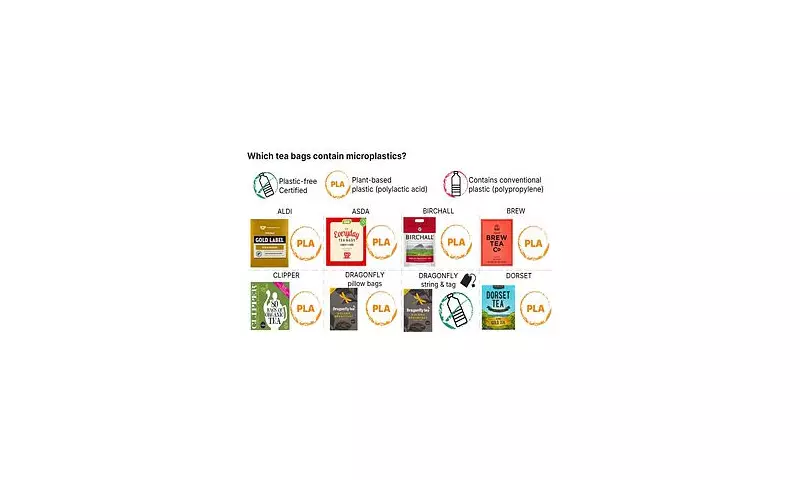
A startling new investigation has uncovered that your comforting cup of tea might be delivering an invisible cocktail of microplastics directly into your body. Research analysing some of Britain's most popular tea brands has revealed that certain plastic-based tea bags release staggering amounts of microscopic plastic particles when steeped in hot water.
The Plastic in Your Cuppa
Scientists made the alarming discovery that a single plastic tea bag could release approximately 11.6 billion microplastic and 3.1 billion nanoplastic particles into your beverage. These microscopic invaders are so small they're invisible to the naked eye, yet their numbers are almost incomprehensible.
The study focused on various tea bag materials, including:
- Traditional paper tea bags
- Silky plastic tea bags
- Pyramid-shaped bags
- Various supermarket own-brands
Which Brands Are Most Affected?
While the research didn't name specific manufacturers, it highlighted that plastic-based tea bags – particularly those with a "silky" texture or pyramid shape – posed the greatest risk. These premium-looking bags, often marketed as containing higher quality leaves, typically use food-grade nylon or polyethylene terephthalate (PET) to create their mesh-like structure.
How the Contamination Occurs
The problem emerges when these plastic tea bags meet boiling water. The heat causes the plastic polymers to break down, releasing billions of microscopic particles directly into your brew. Researchers confirmed this by testing tea bags in water heated to 95°C – the typical temperature for brewing tea.
What This Means for Your Health
While the full health implications are still being studied, scientists express serious concerns about:
- Gut health: Microplastics could damage intestinal cells and affect gut bacteria
- Toxin accumulation: Plastics can absorb harmful chemicals from the environment
- Inflammation: The body may react to plastic particles as foreign invaders
- Long-term effects: The cumulative impact of daily microplastic consumption remains unknown
How to Protect Yourself
Tea lovers needn't abandon their favourite beverage entirely. Simple switches can significantly reduce your exposure:
- Choose loose-leaf tea with metal or ceramic infusers
- Opt for traditional paper tea bags
- Look for brands that use plastic-free packaging
- Consider switching to brands that explicitly state they're plastic-free
As one researcher noted, "We're not suggesting people stop drinking tea, but we are urging both consumers and manufacturers to consider the materials being used." The study serves as a wake-up call about how microplastics have infiltrated even our most basic daily rituals.





